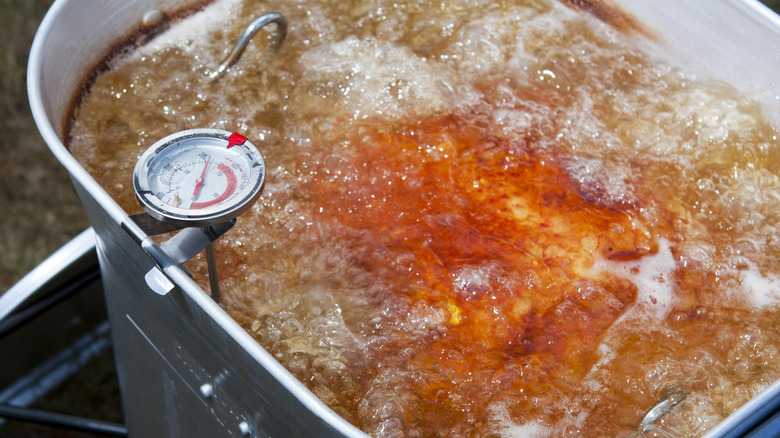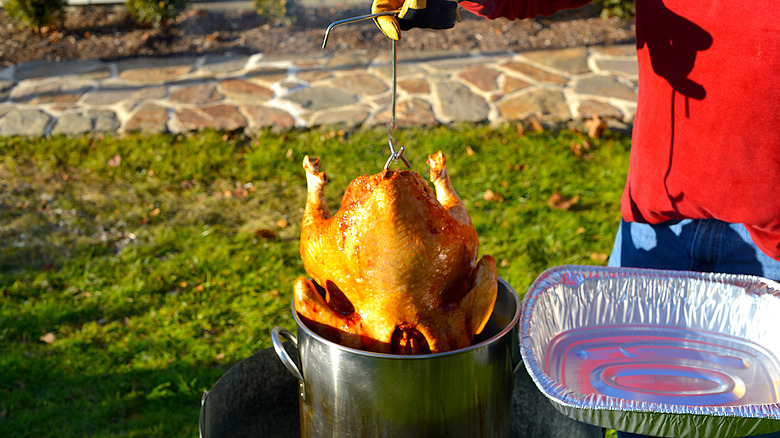Here's How To Deep Fry A Turkey Without Catching Fire
We may receive a commission on purchases made from links.
Whether you hope to embrace Southern comfort cuisine or simply want to diverge from tradition, deep frying a turkey is a sure-fire way to make your Thanksgiving feast all the more interesting this year. It's important to note that deep frying a whole turkey does pose a fire hazard. In general, frying food increases the chance of cooking fires. Turkey fryers can hold a large volume of hot oil and a Thanksgiving gathering means an increased concentration of individuals in a confined area. However, there are ways to achieve crispy skin and juicy meat while mitigating risk of fire or injury, as outlined by the U.S. Fire Administration.
As a precaution: Before you pour in the oil and turn on the heat, you'll want to determine how much oil you need. Wrap the bird in cling wrap, fill the fryer with water, place the bird in the pot, and ensure that the water level does not reach the rim of the tank. Once you know the volume of water that is safe for the size of the bird you intend to fry, use that same amount of oil.
Turkey fryers are large tanks propped up with thin legs, which means there's a risk of it tipping over and spilling hot oil. Because of this, place the fryer on sturdy, flat ground at least 10 feet from any buildings. Make sure the fryer is not over any dead, dry leaves, nor beneath any areas where a roof juts out above it. As with any cooking, there are general guidelines to avoid kitchen injuries that should be followed here as well.
How to mitigate risk once the oil is hot
Many of the tips for a safe deep-fried turkey are performed before the oil is at frying temperature, but there are more safety measures to do once the turkey is ready to fry. Before submerging the turkey into the hot oil, make sure it's entirely thawed. Some store-bought birds are sold frozen, so ensure that there are no remaining frozen spots. The ice crystals will instantly melt into water, causing rapid splattering of ripping-hot oil.
Keeping a close eye on the oil's temperature will also minimize the risk of the oil becoming too hot (deep fryers can catch fire if they overheat). Some turkey fryers do not come with attached thermostats, so make sure to get a kitchen thermometer that can fasten to the side of the fryer; allowing you to easily monitor its temperature. All the while, handle the fryer and turkey with care. Always use oven mitts when touching the fryer, checking the temperature, or inserting and removing the turkey. A deep-fried turkey offers a new twist on tradition just like a mashed potato bar, which brings the classic Thanksgiving side to new heights.

